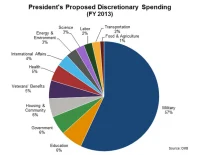Ordered that of the Indians and Half-breeds sentenced to be hanged by the military commission, composed of Colonel Crooks, Lt. Colonel Marshall, Captain Grant, Captain Bailey, and Lieutenant Olin, and lately sitting in Minnesota, you cause to be executed on Friday the nineteenth day of December, instant, the following names, to wit [39 names listed by case number of record: cases 2, 4, 5, 6, 10, 11, 12, 14, 15, 19, 22, 24, 35, 67, 68, 69, 70, 96, 115, 121, 138, 155, 170, 175, 178, 210, 225, 254, 264, 279, 318, 327, 333, 342, 359, 373, 377, 382, 383].
The other condemned prisoners you will hold subject to further orders, taking care that they neither escape, nor are subjected to any unlawful violence.
Abraham Lincoln,
President of the United States


Mass hanging of 38 Dakota Sioux on 26 December 1862
The above quote is the full text of Lincoln’s Order to General Henry Sibley, St. Paul Minnesota on this date authorizing the execution of thirty-eight Dakota Sioux (the sentence of one of the individuals named in the Order was commuted to imprisonment on 23 December). The hanging, following trials which condemned to death over three hundred participants in the 1862 Dakota Conflict (or Dakota War or Sioux Uprising), stands as the largest mass execution in American history. There wasn’t enough rope to make all the nooses, so the hangings were actually delayed until the day after Christmas, occurring on Friday the 26th at about 10:00 AM.
Only the intervention of President Lincoln saved 265 other Dakota from the fate met by the less fortunate thirty-eight. The decision was wildly unpopular among Minnesota’s white settlers. The mass hanging was the concluding scene in the opening chapter of a story of American-Sioux conflict that would not end until the Seventh Cavalry completed its massacre at Wounded Knee, South Dakota, on December 29, 1890.
A decade before the Dakota Conflict, the Minnesota Territory, stretching from the upper Mississippi to the Missouri River, was still mostly Indian country. In 1851, the United States signed two treaties with the Dakota that resulted in the Indians’ ceding huge portions of the Minnesota Territory. In exchange, they were promised annuity payments totaling $1.4 million dollars over a fifty-year period, and directed to live on two twenty-mile wide by seventy-mile long reservations along the Minnesota River. The thoroughly corrupt Bureau of Indian Affairs was responsible for overseeing the terms of the treaties. Not surprisingly, many of the trade goods were substandard and overvalued by several hundred percent, and the promised annuity payments were often not forthcoming – stolen by Washington functionaries, or simply channeled directly to the crooked traders and Indian agents.
This situation continued for years. Finally, in 1858 – the year Minnesota entered the Union – a party of Dakota led by Chief Little Crow visited Washington to see about proper enforcement of the treaties. It did not go the way they’d hoped; instead of acknowledging the Dakota grievances, the government took back half their reservation, and opened it up to white settlement – and promised increased annuity payments. The land was cleared, and the hunting and fishing that had in large measure sustained the Dakota virtually ended.

Forced to Negotiate
by undermining the Dakota culture and the power of chieftains and leading to a corrupt system of Indian agents and traders. Annuity payments reduced the once proud Dakota to the status of dependents. They reduced the power of chiefs because annuity payments were made directly to individuals rather than through tribal structures. They created bitterness because licensed traders cheated the Indians. No effective means of legal recourse was available to wronged Dakota. The fact that the Dakota people were squeezed into a small fraction of their former lands made it easy, according to Minnesota historian William Folwell, “for malcontents to assemble frequently to growl and fret together over grievances.”
Hunger was widespread throughout Dakota lands in Minnesota Territory. Since crops had been poor in 1861, the Dakota had little food stored for the “starving winter” of 1861-62. Their reservation supported no game and increasing settlement off the reservation meant growing competition with white settlers hunting for meat. “These poor creatures subsisted on a tall grass which they find in the marshes, chewing the roots and eating the wild turnip,” wrote Sarah Wakefield, wife of the Upper Sioux Agency’s doctor. “Many died from starvation or disease caused by eating improper food. It made my heart ache. I remember distinctly of the agent giving them dry corn, and these poor creatures were so near starvation that they ate it raw like cattle.”
Reports about government agents’ corrupt treatment of the Dakota were ignored. Factionalism continued to grow amongst the Dakota, as those who maintained traditional ways saw that only those who had acculturated were reaping government support. Though Dakota farmers shared food with their relatives throughout the summer of 1862, it wasn’t enough.
To make matters worse, annuity payments for the Dakota were late in the summer of 1862. An August 4, 1862 confrontation between soldiers and braves at the Upper Agency at Yellow Medicine led to a decision to distribute provisions on credit to avoid violence.
At the Lower Agency at Redwood, however, things were handled differently. At an August 15, 1862 meeting attended by Dakota representatives, Indian Agent Thomas Galbraith, and representatives of the traders, the traders resisted pleas to distribute provisions held in agency warehouses to starving Dakota until the annuity payments finally arrived. Trader Andrew J. Myrick summarized his position in the bluntest possible manner: “So far as I am concerned, if they are hungry, let them eat grass or their own dung.” Unbeknownst to those gathered at the Lower Agency, the long delayed 1862 annuity payments were already on their way to the Minnesota frontier. On August 16, a keg with $71,000 worth of gold coins reached St. Paul. The next day the keg was sent to Fort Ridgely for distribution to the Dakota. It arrived a few hours too late to prevent an unprecedented outbreak of violence.

“So far as I am concerned, if they are hungry, let them eat grass or their own dung.” -Andrew Myrick, 1862
On Sunday, August 17, four Dakota from a breakaway band of young malcontents were on a hunting trip when they came across some eggs in a hen’s nest along the fence line of a settler’s homestead. When one of the four took the eggs, another of the group warned him that the eggs belonged to a white man. The first young man became angry, dashed the eggs to the ground, and accused the other of being afraid of white men, even though half-starved. Apparently to disprove the accusation of cowardice, the other Dakota said that to show he was not afraid of white men he would go the house and shoot the owner. He challenged the others to join him. Minutes later three white men, a white woman, and a fifteen-year old white girl lay dead.
The issue of whether to wage war against white citizens was debated by a multi-band council on August 17, the night following the massacre of five white settlers (murders, beyond question) at Acton. As stated by Chief Big Eagle, “A council was held and war was declared… I was still of the belief that it was not best, but I thought I must go with my band and my nation, and I said to my men that I would lead them into the war, and we would all act like brave Dakotas and do the best we could.” It appears that the decision to wage war was made over the opposition of some tribal leaders.
On 18 August 1862, after the Battle of Lower Sioux Agency, post trader Andrew Myrick was found dead, with his mouth stuffed full of grass.
All told, the Conflict lasted about five weeks. It claimed the lives of some 500 white settlers and U.S. soldiers, caused a general evacuation of settlers from the whole of southwestern Minnesota, and witnessed the wholesale destruction of settlers’ houses, barns, and property. About sixty Dakota died in the fighting.
The Dakota had every right to believe that they would be treated as enemy soldiers–many were told, in fact, that in exchange for their surrender under a flag of truce, they’d be treated as prisoners of war. They were not. White Minnesotans were in no mood for conciliation or reconciliation; retribution–vengeance–stormed through the Minnesota River valley and throughout the state.
General John Pope, Sibley’s superior, wrote to him in a letter dated 28 September 1862:
The horrible massacres of women and children and the outrageous abuse of female prisoners, still alive, call for punishment beyond human power to inflict. There will be no peace in this region by virtue of treaties and Indian faith. It is my purpose utterly to exterminate the Sioux if I have the power to do so and even if it requires a campaign lasting the whole of next year. Destroy everything belonging to them and force them out to the plains, unless, as I suggest, you can capture them. They are to be treated as maniacs or wild beasts, and by no means as people with whom treaties or compromises can be made. [emphasis added]

“It is my purpose utterly to exterminate the Sioux if I have the power to do so…” John Pope, 1862
On 28 September 1862, Sibley appointed a five-member military commission to “try summarily” Dakota and mixed-bloods for “murder and other outrages” committed against Americans, although he had no authority to do so. The commission believed that mere participation in a battle justified a death sentence, so in the many cases, perhaps two-thirds of the total, where the prisoner admitted to firing shots, it proceeded to a guilty verdict in a matter of a few minutes. Somewhat more deliberation was required for trials in which the charge was the murder or rape of settlers, because admissions were much rarer in these cases. After the defendant gave whatever response he cared to make to the charge, prosecution witnesses were called, whose damaging statements went unchallenged. Where prosecution witnesses contradicted the testimony of the defendant, the commission almost invariably found the prisoner to be guilty.
Not only was there a lack of substantial evidence against the defendants and a lack of due process at trial, but commission members harbored prejudice (not surprisingly) against the defendants. One of the Commission’s members, William Marshall, frankly admitted his own difficulty in viewing the evidence impartially: “[my] mind was not in a condition to give the men a fair trial.” Reverend Riggs, an observer at many of the trials, wrote to a St. Paul paper of the attitudes he witnessed: “I have a very high regard for all the gentlemen who composed the military commission. I count them individually among my personal friends. But they were trying Indians; and my sense of right would lead me to give Indians as fair and full a trial as white men. This was the difference between us.”
Furthermore, the commission was wrong to treat the defendants as common criminals rather than as the legitimate belligerents of a sovereign power. The history of the United States reflects, according to Carol Chomsky, Associate Professor at the University of Minnesota Law School, “a de facto recognition that members of an Indian tribe should be treated as legitimate belligerents.” The Supreme Court in 1831 referred to Indian tribes as “domestic dependent nations”, and treaties between the United States and the Dakota recognized the sovereign status of the Dakota. The use of force by individuals in a declared war between sovereign nations is generally not subject to the same treatment as would similar acts of assault or murder committed by individuals under different circumstances. Captured enemy soldiers are treated as legitimate belligerents and held as prisoners of war until hostilities cease and they are released. (This special treatment does not, of course, cover all acts of violence committed by the enemy. Torture, rape, and the killing of unarmed civilians, for example, are considered violations of the laws of war and subject to punishment.) If the defendants were not prisoners of war, the trials should have been conducted in state courts using normal rules of criminal procedure rather than by military commission.
As Chomsky summarizes:
The trials of the Dakota were conducted unfairly in a variety of ways. The evidence was sparse, the tribunal was biased, the defendants were unrepresented in unfamiliar proceedings conducted in a foreign language, and authority for convening the tribunal was lacking. More fundamentally, neither the Military Commission nor the reviewing authorities recognized that they were dealing with the aftermath of a war fought with a sovereign nation and that the men who surrendered were entitled to treatment in accordance with that status.
At President Lincoln’s cabinet meeting on 14 October 1862, the ongoing Dakota trials were discussed. Lincoln and several cabinet members were disturbed by General Pope’s report on the trials and planned executions, and moved to prevent precipitous action. On 17 October, General Pope informed Sibley that “the President directs that no executions be made without his sanction.”
On November 8, after completing the harried trials of Dakota prisoners, Sibley presented the list of 303 condemned Dakota men to the U.S. government. Two days later, President Lincoln wired General Pope: “Please forward, as soon as possible, the full and complete record of these convictions” and “a careful statement” indicating “the more guilty and influential of the culprits.” On 15 November, Pope forwarded records of the trials to President Lincoln, together with a letter urging Lincoln to authorize execution of all of the condemned and warning of mob violence if the executions did not go forward.
Henry Whipple, the Episcopal Bishop of Minnesota, was one of the very few Minnesota whites opposed to the executions. In late November, he met with Lincoln in Washington and discussed the causes of the Dakota Conflict. The President remarked not long after: “He [Whipple] came here the other day and talked with me about the rascality of this Indian business until I felt it down to my boots. If we get through this [civil] war, and I live, this Indian system shall be reformed!” In December, Whipple even published his views in the St. Paul newspapers. So far as is known, he was the only public man who had the courage to face the whirlwind of popular denunciation of all Indians and of the Dakota in particular.
Lincoln knew well that the lust for Dakota blood could not be ignored; to prevent any executions from going forward might well have condemned all 303 to death at mob hands. Alexander Ramsey, the governor of Minnesota – who had made a fortune cheating the Dakota — threatened that if the President didn’t hang all the condemned, the citizens of his state would. On 9 September 1862, Ramsey was furious over the killing of roughly 600 settlers and soldiers when he had addressed the State Legislature and said: “The Sioux Indians of Minnesota must be exterminated or driven forever beyond the borders of the state.”

“The Sioux Indians of Minnesota must be exterminated or driven forever beyond the borders of the state….” -Gov. Alexander Ramsey, 1862
Lincoln believed it important to try to sort out the more guilty from the less guilty. He asked two clerks to go through the commission’s trial records and identify those prisoners convicted of raping women or children. They found only two [cases 2 and 4]. Lincoln then asked his clerks to search the records a second time and add those convicted of participating in the massacres of settlers to the list. This time the clerks came up with the thirty-nine names included in Lincoln’s handwritten order of execution written on 6 December 1862. Because of the Commission’s haste and rather sketchy records, he was unable to determine degrees of guilt as well as he might have had the Commission allowed more time for trials and prepared more complete trial records.
Two Minnesota Republicans in Congress and friends of Lincoln’s – Sen. Morton Wilkinson of Mankato and Rep. William Windom of Winona – were upset about Lincoln commuting the 264 Dakota death sentences. They were the first to push for removal of all Dakota from Minnesota. Windom and Wilkinson sponsored bills to remove the two tribes from Minnesota. The measures passed Congress with little opposition in early 1863, with $50,000 attached to move 3,000 Dakota beyond any states, to unoccupied land “well adapted for agricultural purposes.” The new law dissolved the reservations in Minnesota and canceled the treaties.
On 22 March 1866 President Andrew Johnson ordered the release of the 177 surviving prisoners. They were moved to the Santee Reservation near Niobrara, Nebraska.
DAKOTA 38 from Smooth Feather on Vimeo.
References:






































You must be logged in to post a comment.